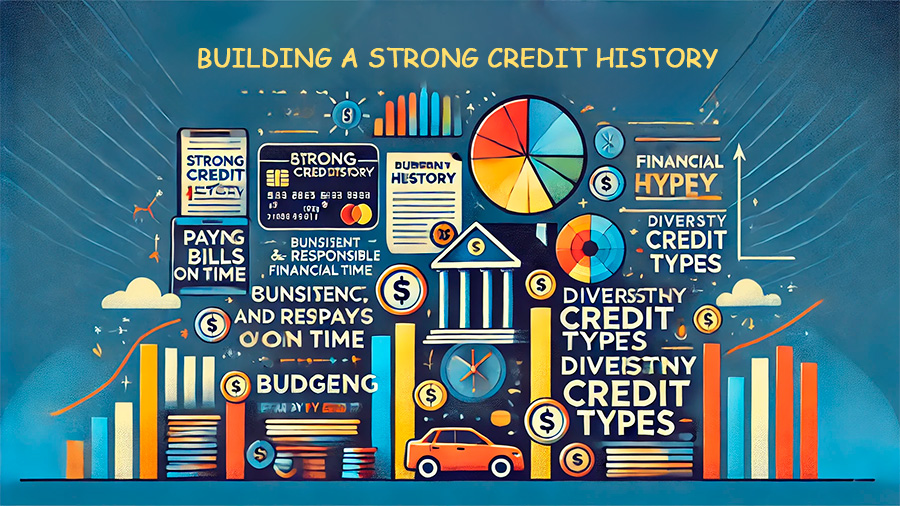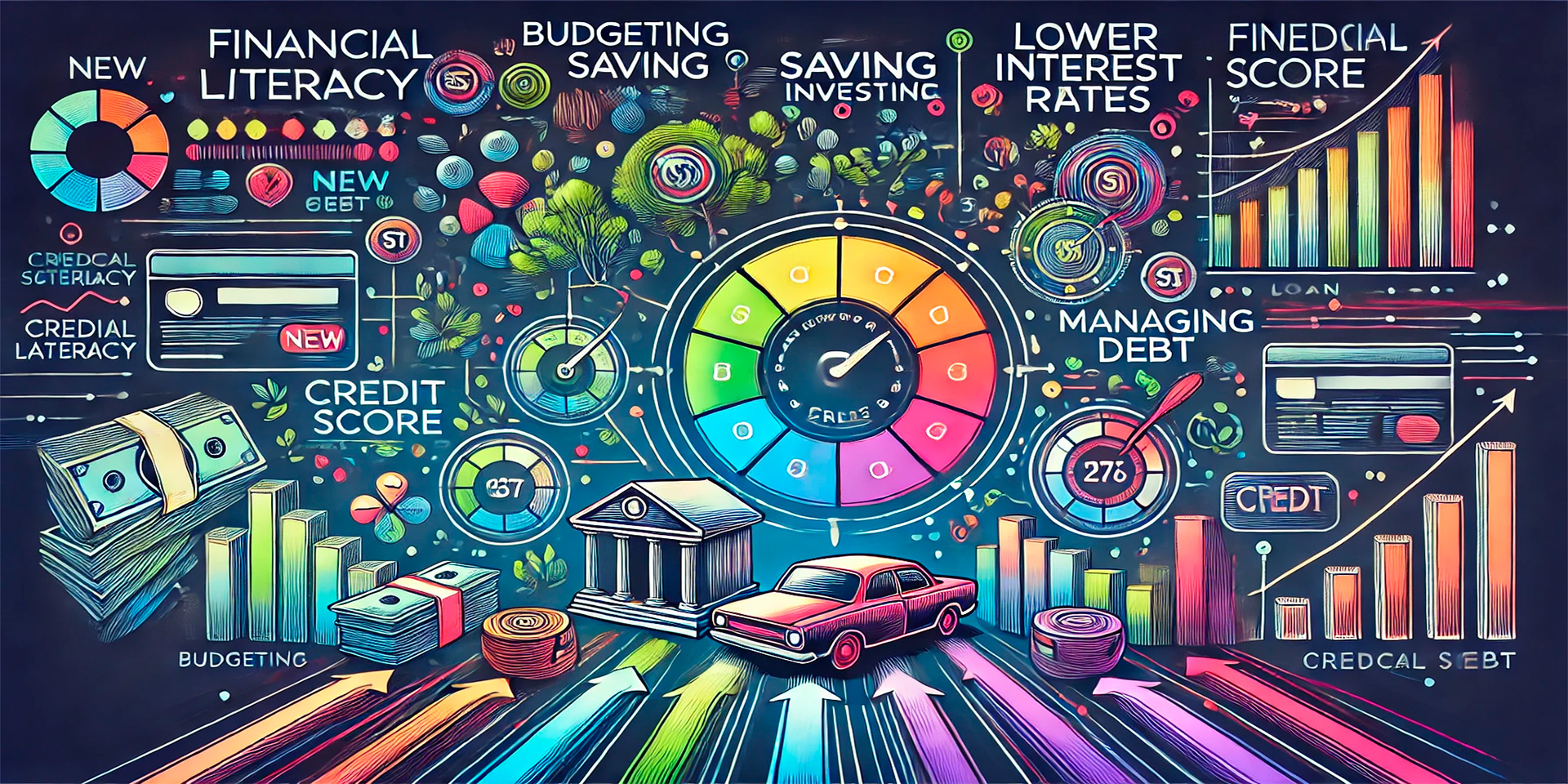Financial literacy is the foundation of effective credit management and is crucial for maintaining a healthy credit score. Understanding how money works—how to budget, save, invest, and manage debt—directly impacts your ability to make informed decisions about credit. By improving your financial literacy, you can better understand the factors that affect your credit score and take the necessary steps to enhance it.
A strong credit score opens doors to better loan terms, lower interest rates, and greater financial opportunities. However, achieving and maintaining a high credit score requires more than just paying your bills on time. It involves a deep understanding of how your financial choices affect your creditworthiness. This guide will explore how financial literacy can help you improve your credit score and achieve greater financial stability.
How Financial Literacy Impacts Credit Scores
Financial literacy encompasses a broad range of knowledge and skills, including budgeting, saving, investing, and debt management. Each of these areas plays a critical role in how you manage credit, which in turn affects your credit score. For instance, understanding the importance of budgeting helps you ensure that you always have enough money to pay your bills on time—a key factor in maintaining a high credit score.
Similarly, knowing how to manage debt is essential for keeping your credit utilization ratio low. This ratio, which compares your outstanding credit balances to your total credit limit, is a significant component of your credit score. A high utilization ratio can lower your score, while a low ratio can boost it. Financial literacy helps you understand how to manage your credit cards and loans to keep your utilization in check.
Investing in your financial education also teaches you the long-term effects of compound interest, both in terms of savings and debt. Understanding how interest accrues on unpaid credit card balances, for example, can motivate you to pay off debt more quickly, improving your credit score and overall financial health.

Building a Strong Credit History Through Financial Literacy
A strong credit history is built on consistent, responsible financial behavior, all of which is rooted in financial literacy. By understanding the factors that contribute to your credit score, you can make decisions that strengthen your credit profile over time.
One of the most important aspects of financial literacy is knowing how to budget effectively. A budget helps you allocate your income to essential expenses, savings, and debt repayment. By ensuring that your bills are paid on time each month, you avoid late payments that can negatively impact your credit score. Budgeting also helps you plan for large expenses, reducing the need to rely on credit cards or loans for unexpected costs.
Financial literacy also teaches you the importance of diversifying your credit mix. Having a variety of credit types—such as credit cards, installment loans, and a mortgage—can positively impact your credit score, as long as each account is managed responsibly. Understanding how different types of credit affect your score allows you to make informed decisions about when and how to take on new credit.
Reducing Debt and Improving Credit Utilization
Managing debt effectively is a critical component of financial literacy and plays a major role in improving your credit score. High levels of debt, particularly credit card debt, can hurt your credit score by increasing your credit utilization ratio. Financial literacy helps you develop strategies to pay down debt efficiently, such as focusing on high-interest accounts first or using the snowball method to tackle smaller balances.
Reducing your credit card balances not only lowers your credit utilization ratio but also frees up more of your income for savings and investments. By understanding the impact of debt on your financial health, you can make more informed choices about borrowing and repayment, leading to a healthier credit score over time.
In addition to paying down existing debt, financial literacy encourages you to avoid accumulating new debt unnecessarily. Understanding the true cost of credit, including interest and fees, helps you evaluate whether taking on additional debt is worth the long-term impact on your finances. This knowledge can guide you in making smarter decisions about when to use credit and when to rely on savings.

Smart Credit Decisions Through Financial Education
Making smart credit decisions is easier when you’re financially literate. This includes knowing how to compare credit offers, understanding the terms and conditions of credit agreements, and recognizing the long-term implications of borrowing. Financial literacy empowers you to ask the right questions and make choices that align with your financial goals.
For example, when considering a new credit card, financial literacy helps you evaluate the interest rate, fees, and rewards structure to determine if the card is a good fit for your spending habits. Similarly, when taking out a loan, understanding the difference between fixed and variable interest rates, or knowing how loan term lengths affect total interest paid, allows you to choose the most cost-effective option.
Financial literacy also equips you to protect your credit score by avoiding common pitfalls, such as applying for too many credit accounts in a short period. Each credit inquiry can lower your score slightly, so knowing when and how to apply for credit strategically is key to maintaining a strong credit profile.
Long-Term Benefits of Financial Literacy
The benefits of financial literacy extend far beyond just improving your credit score. By making informed financial decisions, you can build wealth, achieve financial independence, and secure a stable financial future. A strong credit score is just one aspect of financial health, but it plays a crucial role in your ability to access favorable financial products and opportunities.
In the long term, financial literacy helps you navigate life’s financial challenges with confidence. Whether you’re buying a home, saving for retirement, or planning for your children’s education, understanding how money works and how to manage it effectively gives you the tools to succeed. As you continue to improve your financial literacy, you’ll find that managing credit becomes second nature, and your credit score will reflect your commitment to financial responsibility.
Conclusion
Financial literacy is the key to effective credit management and a healthy credit score. By understanding how money works, you can make informed decisions that improve your financial health and open up new opportunities. Whether it’s budgeting, managing debt, or making smart credit decisions, financial literacy empowers you to take control of your finances and build a strong credit history. Start building your financial knowledge today and enjoy the benefits of a better credit score and a more secure financial future.

